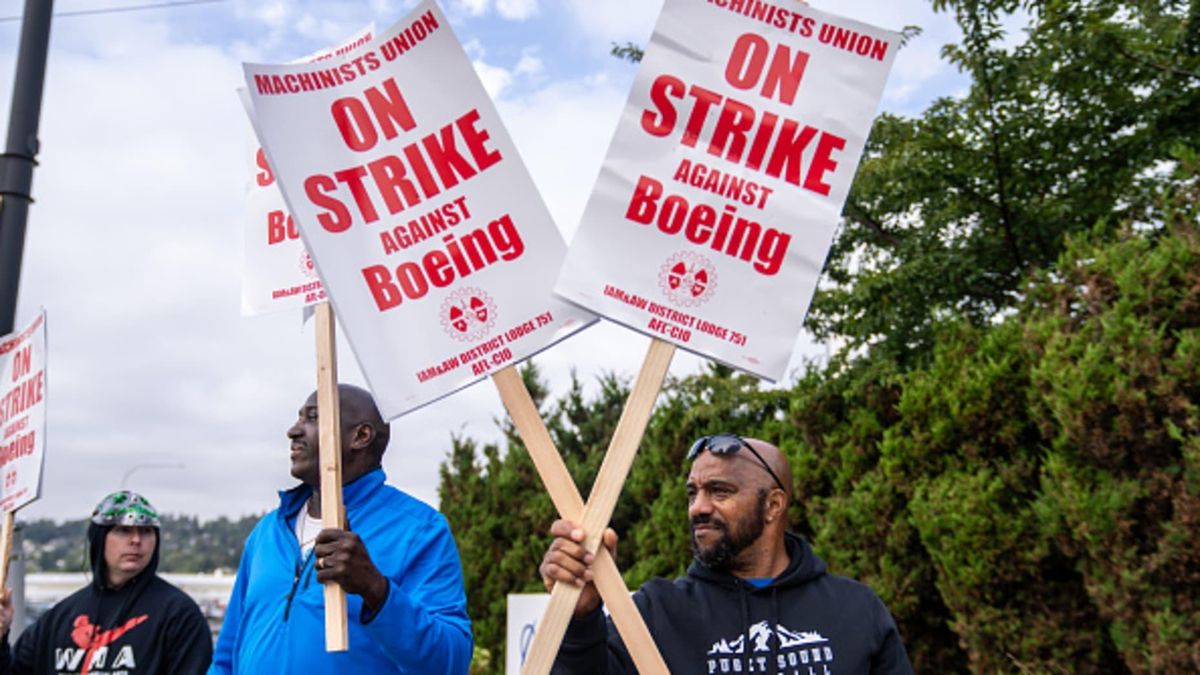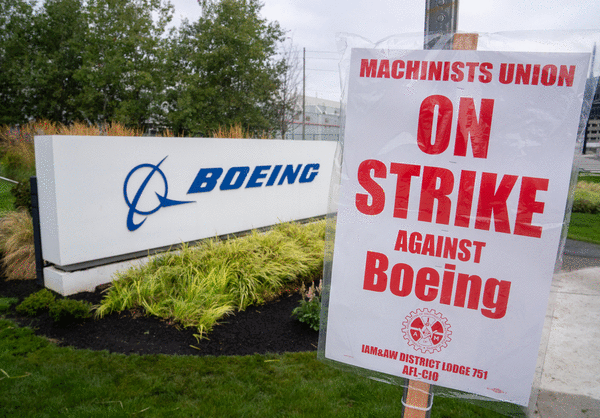Over 30,000 Boeing employees, represented by the International Association of Machinists and Aerospace Workers (IAM), are preparing to vote on a new proposal from the world’s largest aerospace corporation. This proposal includes a 38% pay increase over the next four years, along with a $12,000 bonus (around £9,300) if an agreement is reached. This is an increase from the previous $7,000 bonus offered by Boeing, aimed at persuading workers to end the strike that began on September 13.
Here's ads banner inside a post
The Fight for Workers’ Rights
The strike, which began in mid-September, has led to a severe production slowdown, deepening Boeing’s financial crisis. To date, the company has lost nearly $10 billion due to the strike, according to economic consulting firm Anderson Economic Group.
Previously, the IAM union had called for a 40% pay increase, but two previous offers from Boeing – including one with a 35% increase – were rejected by workers. This time, with the 38% increase, IAM leaders are encouraging members to accept the proposal, calling it a “victory” in this prolonged struggle.
In a social media post, IAM stated, “It is time for our members to lock in these gains and proudly declare victory.” The union added that they believe asking workers to continue the strike would be unreasonable given the success they’ve achieved.
Here's ads banner inside a post
Boeing Pushes Proposal to Resolve the Crisis
Boeing’s offer includes more than just a pay increase and bonuses. The company has also proposed improvements to the workers’ retirement plans, a critical factor influencing their decision. If accepted, Boeing’s average annual pay would reach $119,309 over the next four years, an attractive salary level in the aerospace industry.
Boeing stated in an announcement, “We encourage all employees to learn more about this improved offer and vote on Monday, November 4.”
Worker consensus on this offer could help Boeing stabilize production and ease the financial risks the company faces. Last week, Boeing’s commercial aircraft division reported a $4 billion operating loss for the three months ending in September. To strengthen its finances, Boeing also launched a stock offering expected to raise over $20 billion.
Here's ads banner inside a post
Impact of the Strike
If the strike continues, Boeing faces the risk of credit rating downgrades, which would increase its borrowing costs. Financial pressure has mounted further as Boeing announced plans to lay off around 17,000 workers, with the first layoff notices expected to be issued in mid-November.
The current crisis at Boeing began in January after a significant incident involving a mid-air blowout of one of its passenger planes. In addition, Boeing’s space division suffered a reputational setback when the Starliner spacecraft had to return to Earth without carrying astronauts as initially planned.
Assessment of Boeing’s New Proposal
Analysts believe that with a significant pay raise and an attractive bonus, Boeing’s latest offer could be a reasonable choice for the workers. If an agreement is reached, it will mark a significant achievement in the workers’ rights movement while helping the company stabilize production and mitigate financial losses.
In fact, the strike has heavily impacted Boeing’s business and placed the company in a difficult position. Boeing’s stock rose 2.7% in after-hours trading in New York shortly after the proposed deal was announced, signaling optimism from the market that the company may soon overcome this crisis.
The vote by Boeing’s employees on November 4 will determine whether this new proposal is accepted and may finally put an end to the ongoing strike. Observers are closely watching to see if Boeing can truly overcome its current financial challenges and regain momentum.
If the agreement is reached, it will not only be a victory for the workers but also serve as a lesson to large corporations about the importance of listening to and meeting the needs of their workforce.

